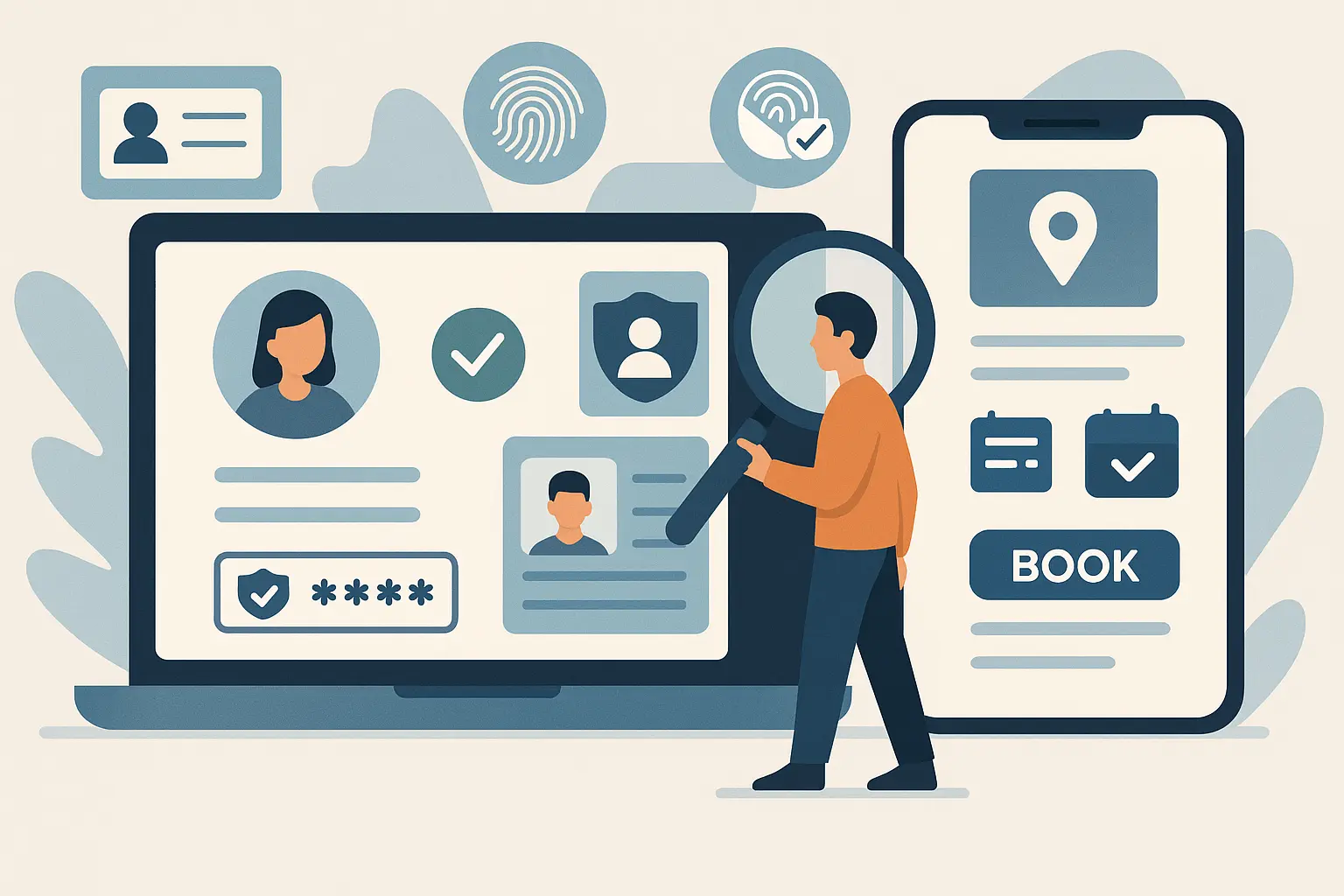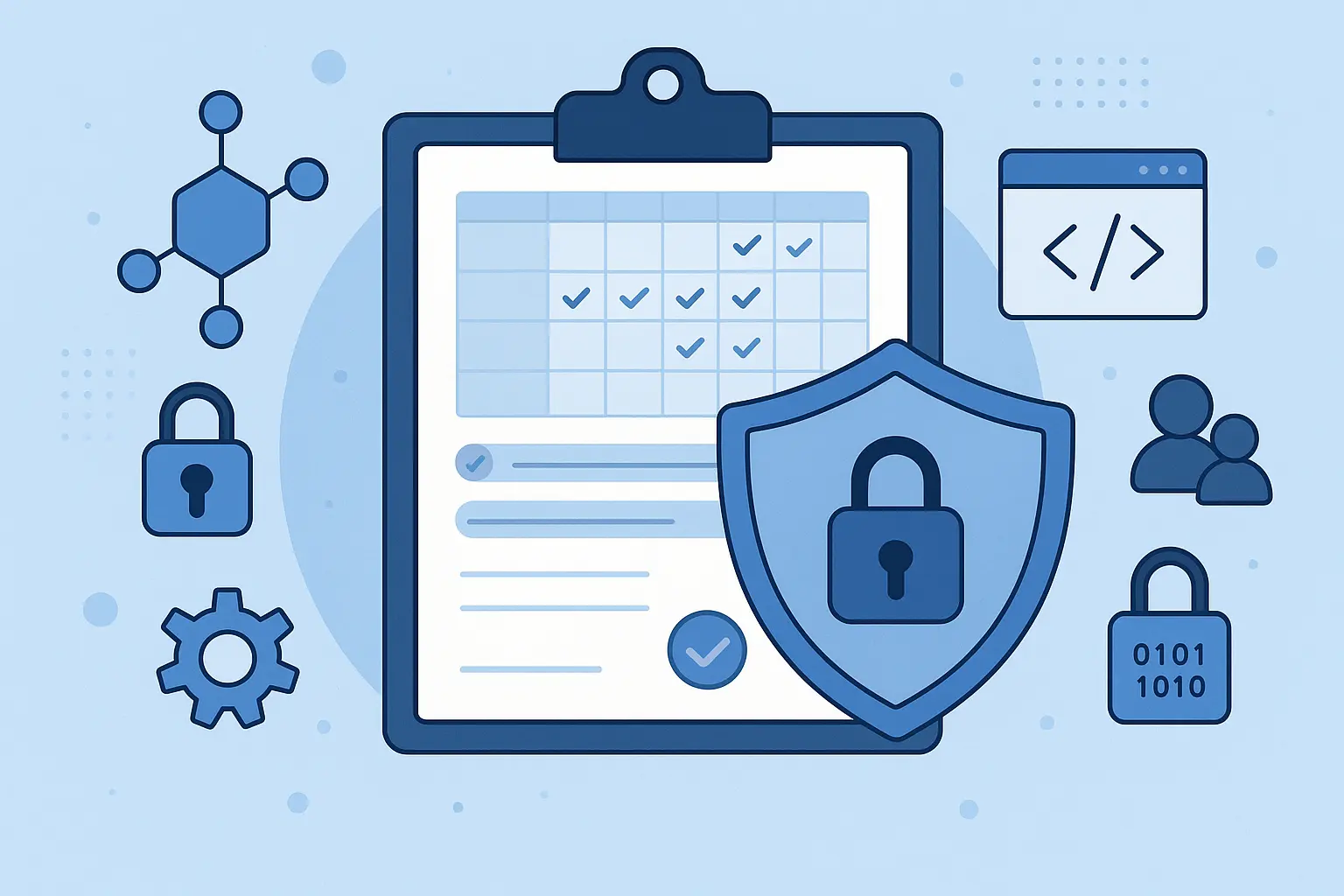The travel booking landscape has undergone a digital transformation in recent years. Advancements in technology have fundamentally changed how people research, plan, book, and experience travel. Where travelers once relied on travel agents, phone calls, guidebooks, and agencies, they now have a world of information and options at their fingertips.
Digital disruption has introduced innovations that make travel planning faster, more personalized, and more efficient. Travel booking is increasingly happening on smart devices, through apps and mobile sites. Artificial intelligence powers search results, recommendations, and custom itineraries. Biometrics are streamlining security and checking in. The Internet of Things (IoT) allows travelers’ preferences and behaviors to be analyzed.
With all of these travel technology solutions, travelers have the potential to optimize the booking process and enhance their trips. This guide examines some of the key technologies transforming travel planning and bookings. We’ll explore the tools and techniques savvy travelers can use to save time and money while also personalizing and improving their travel experiences.
Use Meta-Search Engines
Meta-search engines are a great way to optimize travel bookings by aggregating results across multiple sites. Instead of searching individual airline, hotel, rental car, and online travel agency (OTA) websites one by one, meta-search engines allow you to enter your trip details once and get results from all relevant providers in one place.
Some of the most popular meta-search sites for airfare include Kayak, Skyscanner, Momondo, and Google Flights. These sites search major OTAs as well as airline sites directly to find the best available fares. You can filter by number of stops, departure times, airlines, and other preferences to refine your options. Some meta-search engines also allow you to track prices and get alerts when airfares drop.
For lodging, meta-search sites like TripAdvisor, Trivago, and HotelsCombined compile listings from OTAs like Expedia, Booking.com, and Priceline as well as hotel chain websites. You can view aggregated reviews, photos, amenity information, and pricing in one spot instead of visiting multiple sites. Some hotel meta-search engines let you filter by neighborhood, star rating, price range, and other features to find the ideal property.
Using a capable meta-search engine for each aspect of your trip is one of the best ways to ensure you find the optimal combination of flights, hotels, and other bookings across travel providers. The ability to compare all options in one place saves significant time and effort.
Leverage Chatbots
Chatbots are automated programs that can respond to simple customer service queries, provide information, or complete basic tasks through conversation. When booking travel, chatbots can be incredibly useful for getting quick answers to common questions at any time of day.
Many airlines, hotels, rental car companies, and online travel agencies now offer customer service chatbots on their websites or apps. These bots are available 24/7, so you don’t have to worry about calling during business hours or waiting on hold. Just start typing your question and the chatbot will do its best to understand and provide an answer.
For example, Cruise America, an Orlando RV rental company uses a chatbot to quickly help customers find an ideal RV for rent or buy. The chatbot quickly gives them various RV options based on their budget, traveling date, etc., helping in enhancing the overall customer experience.
Chatbots can help with pre-trip planning by informing you about baggage fees, pet policies, seat options, hotel amenities, rental car add-ons, and more. They can also assist during your trip by providing gate numbers, airport maps, lounge locations, nearby restaurant suggestions, and other real-time information.
The major benefit of chatbots is their instant availability around the clock. You don’t have to wait on the phone on hold or for an emailed response. The chatbot starts conversing with you right away. And though they may not always understand complex questions, chatbots can quickly handle common customer service inquiries about policies, reservations, and travel details.
So next time you need an immediate answer while booking or during your travels, don’t hesitate to ask the chatbot for assistance. Their 24/7 availability provides a convenient way to get your customer service and travel planning questions addressed anytime.
Consider Travel Apps
Travel apps on your smartphone can be invaluable tools for planning, booking, managing, and enhancing your trip. With just a few taps, you can compare prices across travel sites, book flights and hotels, access your itinerary, get destination recommendations, translate languages, avoid foreign transaction fees, and more.
Key features to look for in top travel apps include:
- Manage bookings and reservations in one place instead of various confirmation emails and printouts. Access your boarding passes, rental car bookings, event tickets, and more through the app.
- Receive destination recommendations, alerts, and updates. The app can suggest nearby attractions, restaurants, and things to do based on your location.
- Mobile convenience for on-the-go access to your reservations without wifi or roaming fees. Useful if you need to quickly verify hotel or airline details.
- Book rides, tours, and activities directly within the app and get digital receipts and tickets. No need to print reservations.
- Browse curated recommendations and secure deals exclusive to app users. Partnerships allow special offers not available elsewhere.
- Access maps and translation tools even when offline. Download key information so you have access without data or wifi connections.
- Trip organization and itinerary planning features keep your schedule and bookings in one dashboard. Built-in rebooking options if plans change.
- Payment options through the app can prevent foreign transaction fees that come with physical credit cards. Virtual cards also enhance security.
With so many features optimized for travel in the palm of your hand, travel apps can maximize the convenience, savings, and enjoyment of any trip.
Use Price Tracking Tools
When booking travel online, prices can fluctuate frequently based on supply and demand. Using price tracking tools is an excellent way to find the best deals and get alerts when prices drop.
Many travelers make the mistake of only checking prices once before booking. However savvy travelers use price tracking to get notifications when rates change. Keeping up with travel trends can also help, as seasonal demand and emerging destinations often influence pricing fluctuations.
Price tracking tools monitor selected flights, hotels, rental cars, cruises, and more. You simply enter your desired travel dates and details. The tool will continually check pricing and alert you if the rate drops or a promotion becomes available.
Popular travel price tracking services include Hopper, Kayak Price Forecast, TripIt Price Drop Protection, and Google Flight Price Tracking. Many are free to use.
By leveraging price tracking technology, you can effortlessly find the most affordable rates for your next trip. The tools provide 24/7 monitoring and instant alerts when cheaper prices become available or sales pop up. This enables making the most informed and cost-effective travel booking decisions.
Enable Location Services
Location services on phones and mobile devices allow apps to access your location data. This can provide useful information on travel apps and services when you’re on the go.
By enabling location tracking, your apps can give you personalized recommendations based on where you are. For example, a restaurant app might suggest places to eat nearby while a travel app could show you things to do around your hotel.
To enable location services, go into your device settings and make sure location access is turned on for the apps you want to allow tracking. You can customize which apps have access and when. Overall enabling location can optimize your travel experience and open up new local discoveries.
Let AI Suggest Itineraries
Artificial intelligence is revolutionizing the way travelers plan vacations and bookings. AI-powered tools can now analyze your preferences, previous trips, budget, and other factors to generate custom itineraries for you automatically. This saves travelers huge amounts of time and research.
Some AI travel planners allow you to input details like your ideal pace of travel, interests, and “must-see” destinations. The AI then crunches data to create a day-by-day itinerary optimized for your needs. For example, Imagine planning a trip to Normandy to explore historic WWII landmarks. The AI considers elements like Omaha Beach Memorial and the Pointe du Hoc bunker’s opening hours, admission costs, travel times between attractions, crowds, and weather. The AI aims to maximize your time, budget, and enjoyment.
For example, Google’s Trip Builder tool lets you drop pins on a map for the places you want to go. The AI then creates a logical and efficient route between those pins factoring in travel modes and time constraints. The AI avoids having you crisscross back and forth. Some tools like RoadTripper even let you set parameters like “adventure” vs “relaxing” to influence suggested activities.
The benefit of letting an AI plan your travel route is that it’s far more efficient than a human. The AI can process vast amounts of data on attractions, transport options, crowds, and weather that no travel agent could. It customizes routes specific to your trip parameters. The result is an itinerary that saves you time, money, and headaches. AI travel planners reduce planning stress and give travelers peace of mind that they maximize their experience.
Voice Assistants
Voice assistants like Siri, Alexa, and Google Assistant are making waves in the travel industry. Hands-free searching and booking through voice commands offer convenience and efficiency.
Tell your voice assistant the destination and dates for your next trip. It can suggest flights, hotels, rental cars, and more based on your preferences. Voice search helps surface options you may not have found yourself.
Voice assistants integrate with travel brands, allowing you to book hands-free hotels, flights, and activities. Say “Ok Google, book a hotel room in San Francisco next weekend for under $200 per night with free cancellation.” Google Assistant will take care of the rest.
Some airlines even allow voice check-ins. Just say “Ok Google, check me in for my United Airlines flight” and Google Assistant will pull up your reservation and start the check-in process.
Voice enables multitasking, allowing you to plan your travels while cooking dinner or driving. It makes the booking process smoother and more conversational.
As voice technology advances, expect even more integration into the trip planning and booking process. Voice assistants will reshape travel by allowing hands-free control over every step of your journey.
Biometric Boarding
Airports are increasingly using biometric technology like facial recognition and fingerprint scans to improve the boarding process. This allows passengers to skip long check-in and ID verification lines, and go straight to airport security.
Facial recognition works by scanning a passenger’s face and comparing it to the photo in their passport or travel profile. Once verified, passengers can proceed through security and to their gate without ever showing a boarding pass or ID. Fingerprint scans achieve the same goal, providing a unique biometric identifier.
Biometric boarding promises a smoother and faster airport experience. Without the need to fumble for documents at each checkpoint, passengers can breeze through the airport more efficiently. It may also enhance security by ensuring that only verified travelers can proceed through restricted areas.
As the technology improves, more airports are rolling out biometric boarding programs. Major hubs like Atlanta, Dallas-Fort Worth, and Miami International already use facial recognition for some flights. Travelers willing to share their biometric data can expect a streamlined trip through participating airports. Just be ready to scan your face or fingers when it’s time to board.
Conclusion
Technology continues to transform and optimize the travel experience in exciting ways. As we’ve explored, advanced tools like meta-search engines, chatbots, travel apps, price trackers, location services, AI, voice assistants, and biometrics are making trip planning, booking, and transportation smoother and more personalized than ever before.
Looking ahead, we can expect even more innovation in this space. Virtual and augmented reality may allow travelers to preview destinations and hotels. Advanced biometrics like iris, face, and fingerprint scanning could speed up security processes. AI chatbots will become more conversational and helpful for planning full trips. Autonomous vehicles like self-driving cars and shuttles could transform transportation at destinations. And platform integration will likely connect different apps and services together for seamless end-to-end experiences.
While technology will continue to evolve rapidly, the core appeal of travel remains timeless. Human connection, cultural immersion, a sense of adventure, and a journey of self-discovery will always be at the heart of why we explore this amazing world. By leveraging the latest innovations, we can focus less on logistics and more on creating meaningful memories. The future of tech-enabled travel is bright, and more personalized and optimized journeys lie ahead.








